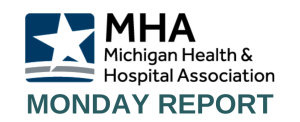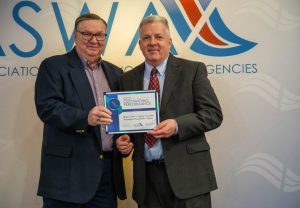
“When people are financially invested, they want a return. When people are emotionally invested, they want to contribute.” – Simon Sinek


For our members, we know delivering exceptional care begins with hiring, developing and retaining quality talent. We also know that the demographic realities of an aging population and the associated retirements, rising stress and burnout, and increased rates of violence against healthcare workers are all contributing to retention challenges and staffing shortages. Finally, as with any daunting issue, we know the best way for us to be helpful to our members is to first tap their expertise, letting them share the details of their day-to-day experience so we can identify the most impactful solutions both inside and outside of the public policy domain. In short, we listen.
Through our MHA Human Resources & Workforce Council, we convene our HR professionals to discuss issues such as workforce development, the education and training pipeline, diversity, equity and inclusion efforts, workplace safety, and emerging technologies that can aid in the completion of clinical and non-clinical tasks. The council generates robust information sharing on best practices, as well as discussion on HR-related legislative and regulatory proposals at the state and federal level.
Our work with this council does not occur in a vacuum but is instead complemented by our continual engagement with MHA committees, councils and task forces that include chief medical officers, chief nursing officers, hospital and health system attorneys and government affairs leaders. So, what have we accomplished to date? The list is long and impressive. Just a few examples:
- Over the past two state budget cycles, we secured $300 million in new funding for our member hospitals for the specific purpose of workforce recruitment and retention.
- We launched the new MI Hospital Careers campaign, which has helped to shine a light on hospitals and healthcare as a viable career path for Michiganders. We also continue to partner with state universities and community colleges to ramp up health-related training programs.
- We successfully advocated for Public Acts 271 and 272 of 2023, recently signed by Gov. Whitmer, which increase the penalties for violence committed towards healthcare workers or volunteers.
- Our MHA Keystone Center launched the Well-B workforce well-being initiative, which has now reached thousands of hospital workers and is contributing to enhanced resiliency of our front-line caregivers.
- Our MHA Graphic Services division designed and produced workplace safety posters, which are now prominently displayed in hospitals throughout Michigan.
- The MHA is hosting our annual Human Resources Conference this month, which brings together chief human resource officers and leaders to collaborate, strategize and network. The conference is headlined by Kerry Ebersole Singh, the chief talent solutions & engagement officer at the Michigan Economic Development Corporation. Her presence confirms the MEDC’s recognition of the significant role healthcare plays in our state’s labor force and economic success – a fact we annually lift up in our Economic Impact of Healthcare report.
- The MHA Service Corporation (MHASC) plays a vital role in this realm. Our HR Conference is sponsored by MHA Endorsed Business Partners AMN Healthcare and Salary.com (as well as MHA members Executive Core and HPS, and event sponsor Vault Verify), who are all involved in the workforce solutions space. The MHASC is working with partners who assist hospitals with de-escalation training and staff safety, virtual nursing programs and other emerging technologies, and more.
- The MHASC is crucial to our work here in yet another way. The MHA Unemployment Compensation Program has a decades-long track record of success, saving millions of dollars every year for their more than 700 clients.
Everything listed is an example of proactive, positive activity. In other words, “playing offense.” Of course, one of our most significant activities in the workforce realm is an example of “playing defense” by ensuring government mandated nurse staffing ratio legislation that would significantly jeopardize patient access to care is not advanced by the state legislature. As discussed at length in a recent CEO Report, the MHA has worked very effectively to explain the complexity associated with hospital staffing and the tangible solutions that will actually address workforce shortages.
There is no silver bullet to solving healthcare’s workforce challenges. Michigan’s population is not growing and there are many market forces at play unique to healthcare. However, I’m extremely pleased by the work our own MHA staff has put forth to best position our members to achieve our workforce goals. And it couldn’t be done without the engagement from our colleagues in hospitals throughout the state who are doing all they can to ensure access to high quality care 24/7/365. Collectively, these are people who are clearly emotionally invested and making significant contributions to this worthy cause.
As always, I welcome your thoughts.






